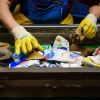Career for the future: solar expert
The Berlin Renewables Academy (RENAC) offers training in the installation of renewable energy technology worldwide. An example from Malaysia.

Malaysia averages six hours of sunshine a day. This also means six hours of energy that can be supplied to large numbers of people. This energy has hardly been harnessed up to now – photovoltaic systems are still rare on the ground. Electricity is mainly generated by coal-fired power stations and – especially in remote areas far from the general power grid – diesel generators. However, these are expensive and also harm the environment. Photovoltaic systems would be not only an inexpensive alternative, but also a sustainable one. Solar panels could be installed on roofs or other surfaces within a very short space of time. This technology is now available worldwide – and at reasonable prices. Jens Altevogt, who is project manager at the Berlin Renewables Academy (RENAC) and the person responsible for solar energy courses at this private educational establishment, says: “Apart from sunlight, people are the most important resource for the success of solar technology.” Interest in alternative energy sources has been rising for some time in Malaysia. However, Altevogt explains the problem: “There are still very few people in Malaysia who are familiar with the technology and can plan, install, repair or maintain the systems.” For a long time there were no special training opportunities for the new careers that are emerging in the energy industry. But that is set to change. The Selangor Human Resource Development Centre and its project partner, the Aachen Chamber of Crafts and Trades, has asked RENAC to train solar trainers in Malaysia, giving them a wide range of solar know-how. They can later themselves pass this knowledge on to local tradesmen, largely applying German standards in vocational training for solar technology specialists.
What material and what kind of knowledge do the trainers need? What is the best way to set up a craft-oriented training centre? What are the laws and standards governing photovoltaic systems in Malaysia? How do you give a good lecture? Altevogt and his Berlin colleagues answered these and other questions in the 2013 “Train-the-Trainer” project. The aim now is for the new trainers to get photovoltaics established in Malaysia as quickly as possible.
The Berlin Renewables Academy (RENAC) has been offering training courses and services for public institutions, businesses and organizations worldwide since 2008. The participants learn all about renewable energies in online courses, workshops and seminars. Apart from the technology, the topics studied include project management, finance, law and standards. The independent academy collaborates with numerous institutions, such as chambers of crafts and chambers of foreign trade, and would also like to expand these forms of cooperation in the future.
Furthermore, RENAC offers two master’s degree programmes in cooperation with Berlin’s universities. In addition to the project in Malaysia, RENAC’s 24 members of staff in Berlin are involved in numerous other initiatives relating to alternative energy sources. They are found in 134 countries and have a total of 3,400 participants. “Our aim is to spread knowledge about renewable energy and energy efficiency all over the the world, ensuring that this knowledge is tailored to the different target groups and taught in the relevant languages,” explains Berthold Breid, RENAC’s chief executive.
When he founded the academy, there was no comparable institution anywhere – neither in Germany nor internationally. Yet the demand for vocational training in this field was great. Breid knew this, because he had previously run projects to promote the photovoltaic and solar thermal sectors in Berlin and worldwide for the German Energy Agency and the European Union. “Technological progress in the energy sector requires new approaches to training, but these were hardly developed in 2008.” Today the participants enrol for online courses and meet for practical courses, where they learn to install solar modules, for example. At these classroom sessions they work together independently of institutional or geographical borders and benefit from the experience of the other participants. “I’m so often surprised at the kind of synergies that emerge,” the RENAC boss says. ▪
Clara Görtz

